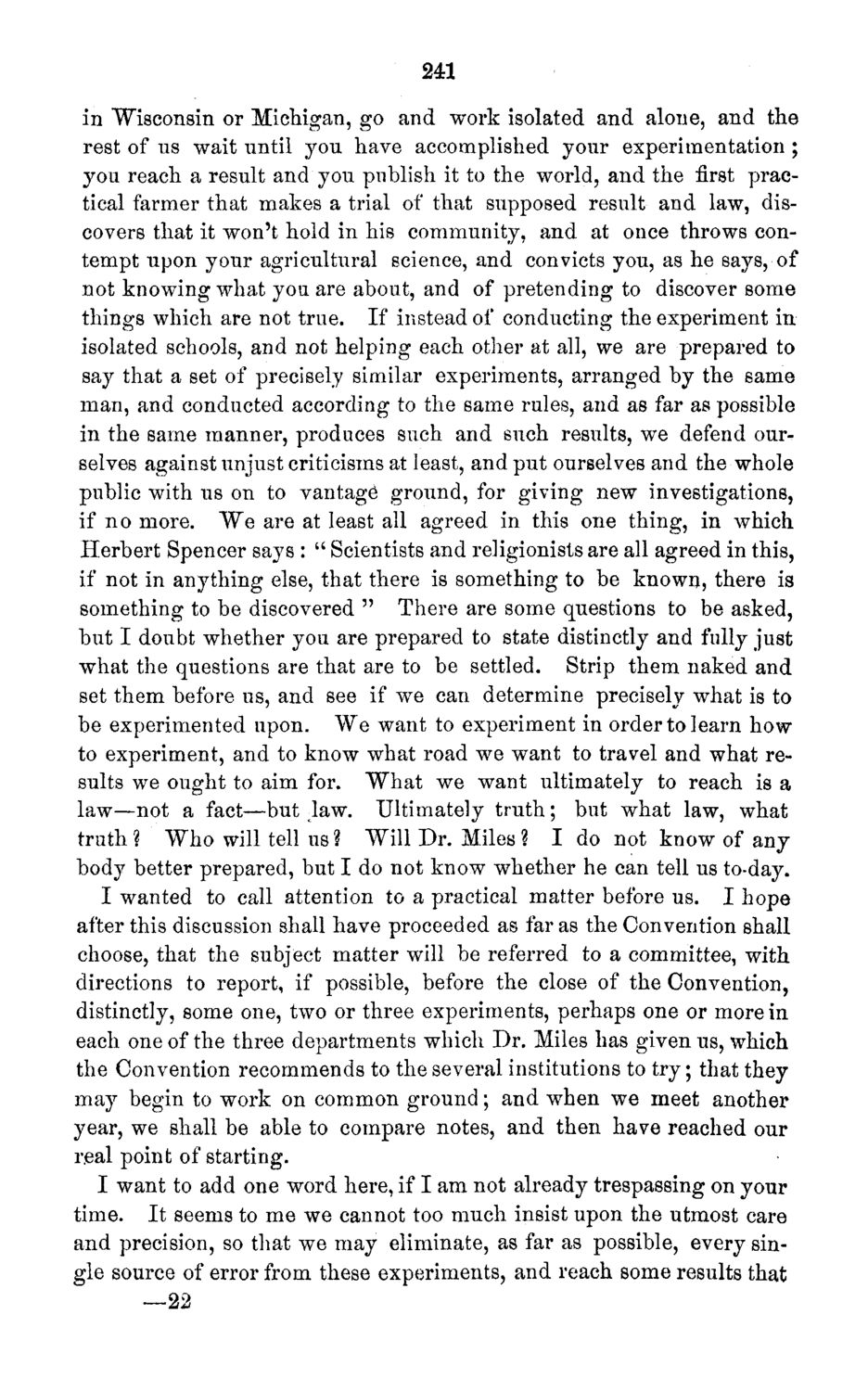| |
| |
Caption: Board of Trustees Minutes - 1871
This is a reduced-resolution page image for fast online browsing.

EXTRACTED TEXT FROM PAGE:
241 in "Wisconsin or Michigan, go and work isolated and alone, and the rest of us wait until you have accomplished your experimentation ; you reach a result and you publish it to the world, and the first practical farmer that makes a trial of that supposed result and law, discovers that it won't hold in his community, and at once throws contempt upon your agricultural science, and convicts you, as he says, of not knowing what you are about, and of pretending to discover some things which are not true. If instead of conducting the experiment in isolated schools, and not helping each other at all, we are prepared to say that a set of precisely similar experiments, arranged by the same man, and conducted according to the same rules, and as far as possible in the same manner, produces such and such results, we defend ourselves against unjust criticisms at least, and put ourselves and the whole public with us on to vantage ground, for giving new investigations, if no more. "We are at least all agreed in this one thing, in which Herbert Spencer says : " Scientists and religionists are all agreed in this, if not in anything else, that there is something to be known, there is something to be discovered " There are some questions to be asked, but I doubt whether you are prepared to state distinctly and fully just what the questions are that are to be settled. Strip them naked and set them before us, and see if we can determine precisely what is to be experimented upon. We want to experiment in order to learn how to experiment, and to know what road we want to travel and what results we ought to aim for. What we want ultimately to reach is a law—not a fact—but law. Ultimately truth; but what law, what truth? Who will tell us? Will Dr. Miles? I do not know of any body better prepared, but I do not know whether he can tell us to-day. I wanted to call attention to a practical matter before us. I hope after this discussion shall have proceeded as far as the Convention shall choose, that the subject matter will be referred to a committee, with directions to report, if possible, before the close of the Convention, distinctly, some one, two or three experiments, perhaps one or more in each one of the three departments which Dr. Miles has given us, which the Convention recommends to the several institutions to try; that they may begin to work on common ground; and when we meet another year, we shall be able to compare notes, and then have reached our real point of starting. I want to add one word here, if I am not already trespassing on your time. It seems to me we cannot too much insist upon the utmost care and precision, so that we may eliminate, as far as possible, every single source of error from these experiments, and reach some results that —22
| |